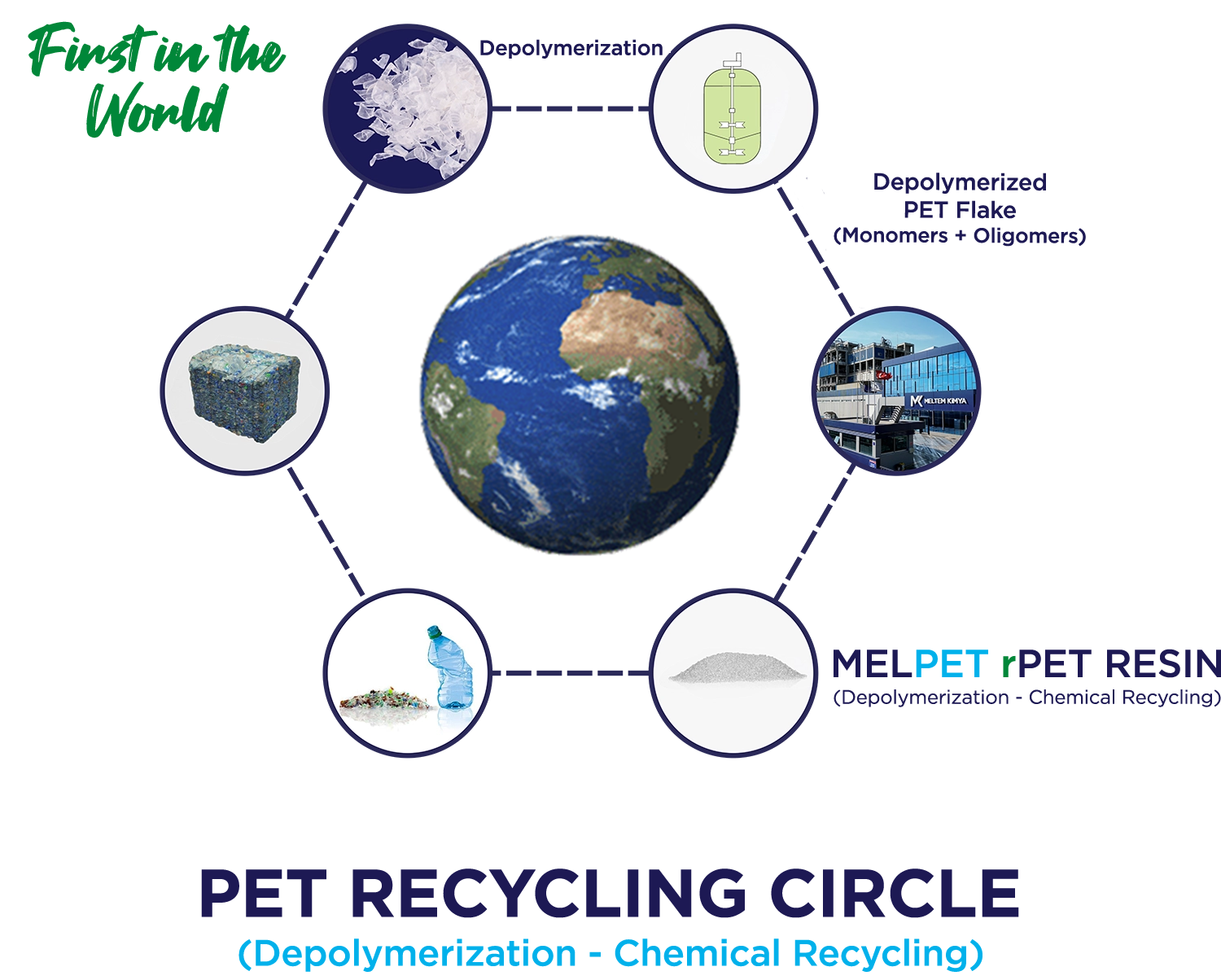Produced by depolymerization of high quality and hot-washed Post Consumer Bottle (PCB) flakes via glycolysis method (Chemical Recycling)
%25, %30, %50 ve %100
recycled content grades are available
Can be used in CSD (carbonated soft drinks), water bottle, textile and monofilament, BOPET film, Hotfill, CPET applications
From 0.64 IV (Amorphous) to 0.86 IV (SSP) grades
Lower CO2 footprint
Approved by Global Beverage and Packaging Companies
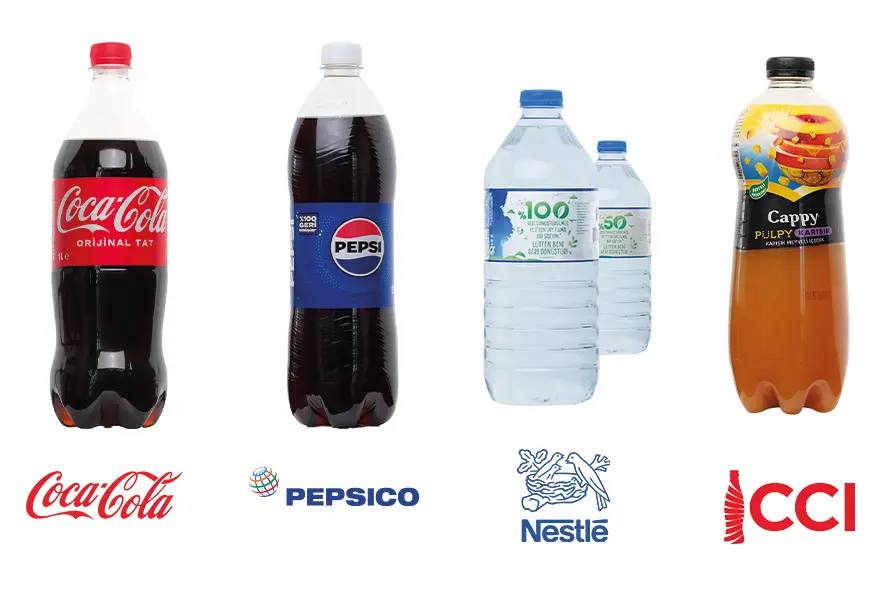
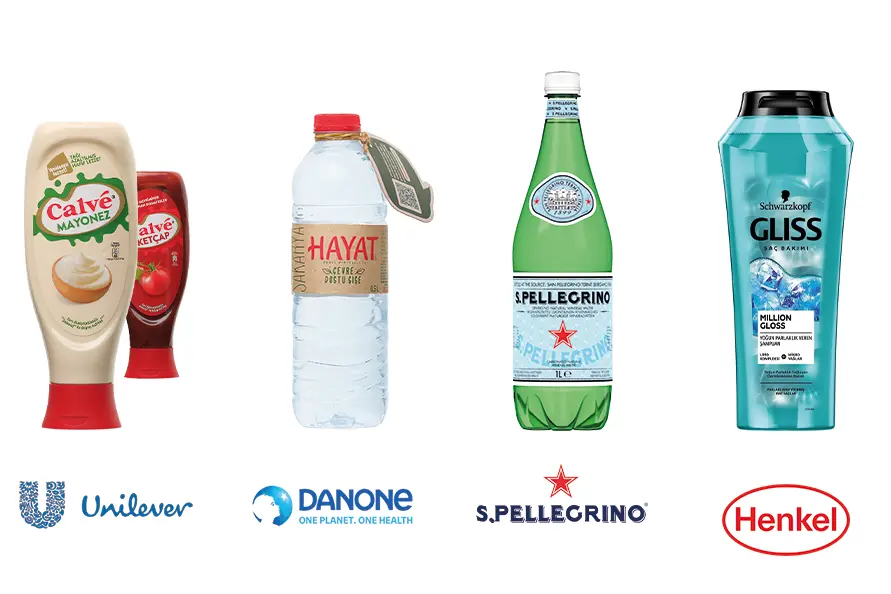
rPET Production Method of Meltem Kimya
Chemical Recycling (depolymerization) is the conversion of PET polymer into its monomers, which are the smallest part of the polymer chain, by the glycolysis method. High quality PET flakes obtained from food-grade PET bottles are cleaned of contaminants; sorted by colors; and disinfected by hot washing by the approved and licensed suppliers who deal with collection, separation, sorting and washing arrive at Meltem Kimya. Although the PET flakes are of high quality, they are not taken into the depolymerization process directly. First of all, these PET flakes are prepared for the depolymerization method in our high-tech classification and conditioning facility in order to minimize PVC, other plastics and impurities. Then the classified and conditioned PET flakes are transferred to our PET resin production facility. There; polymerization of the oligomers-monomers (small molecules of polymers) that are conversed by depolymerization (chemical recycling) method is completed by inclusion of original raw-materials in certain proportions; then the rPET resin, which is the raw-material of PET food packaging, is manufactured. The rPET resin released to the market is turned into PET bottles and used as packaging suitable for food. Thus, a full-cyclic and potentially infinite recycling solution is created.
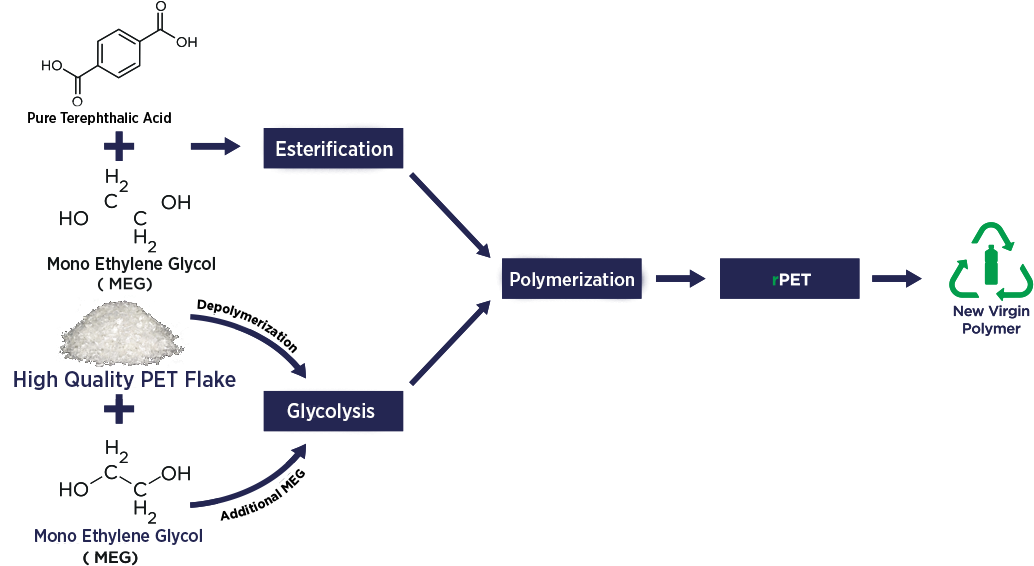
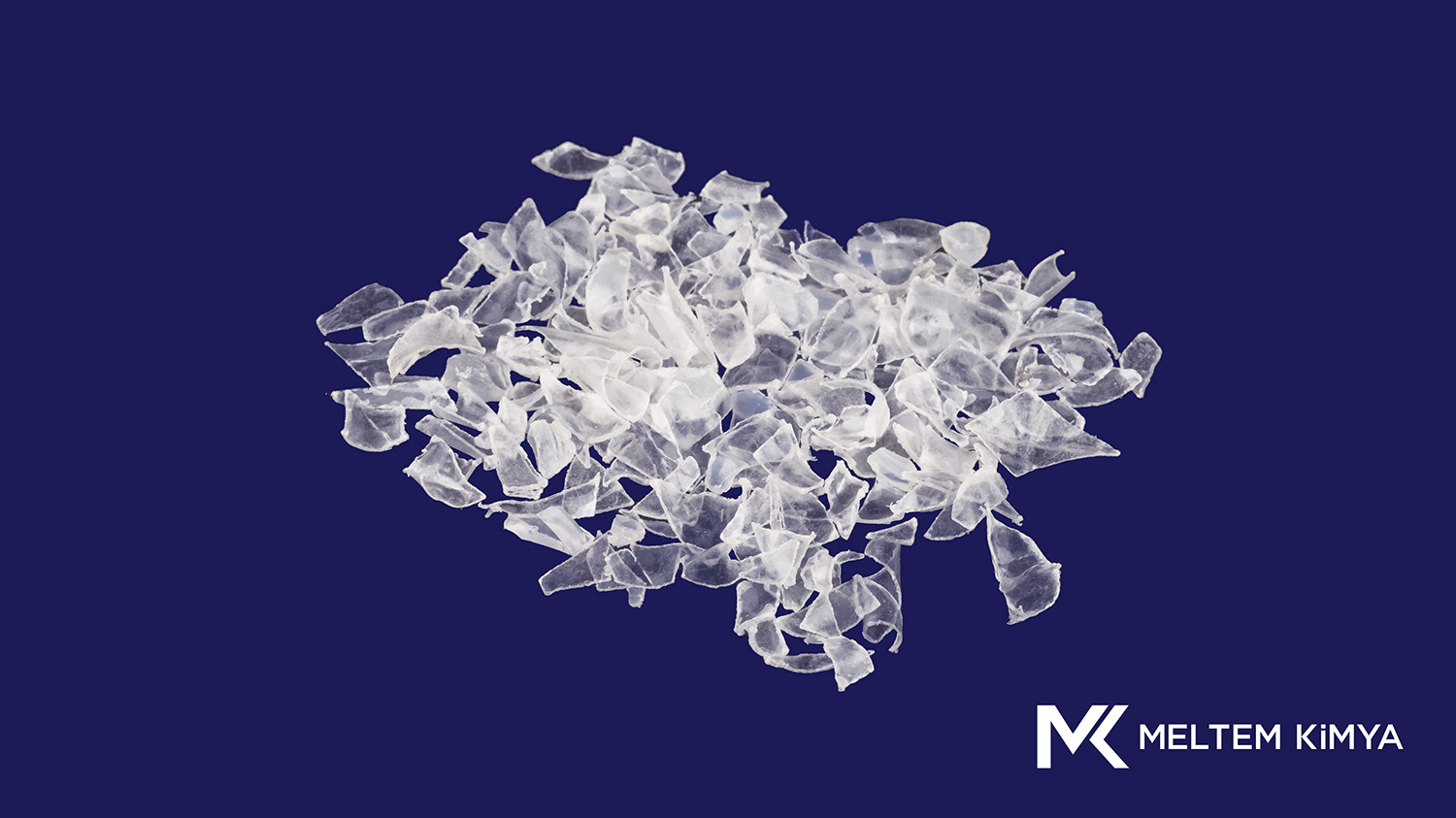
Meltem Kimya has been producing rPET resin by depolymerization (chemical recycling) of high quality and hot washed PET flakes which obtained from Food Contacted Post Consumer Bottles in glycolysis system.
Unlike the original resin, products made of rPET resin are environmentally friendly as they require less natural resources. Products made of rPET resin are recyclable and they contribute to the sustainability cycle. There are several ways to recover (recycle) PETs. The most common methods are mechanical (physical) recycling and chemical recycling.
Mechanical recycling of PET bottles involves melting the washed packaging flakes under heat and pressure and reprocessing them into granules. These granules can be used as-is or blended with virgin PET resin for further processing. However, since packaging materials produced from mechanically recycled raw materials may contain PVC impurities — which pose a risk to human health — the use of this method is prohibited in Türkiye and not permitted under the Turkish Food Codex. Additionally, packaging produced through mechanical recycling can only be recycled up to seven times.
Chemical recycling is one of the most important methods for recovering PET bottles. The goal of chemical recycling is to completely eliminate contaminants and impurities in PET flakes through depolymerization in the glycolysis system. Chemical recycling is a crucial step towards achieving a circular economy. By recovering used beverage bottles and converting them into food-grade raw material (rPET resin) through the appropriate method, we complete the zero-waste cycle—paving the way for a healthier and more sustainable future. Packaging produced through chemical recycling can be infinitely recycled.
The chemical depolymerization method involves reacting recycled PET with a sufficient amount of ethylene glycol at temperatures above 200 °C under pressure. In the glycolysis unit, the reaction is repeated several times until depolymerization is fully achieved, resulting in bis(2-hydroxyethyl) terephthalate (BHET) and short-chain polymers. The resulting BHET is then purified under heat and pressure in its molten state to completely remove all impurities.
rPET Resin Products
Please select a filter to find products


